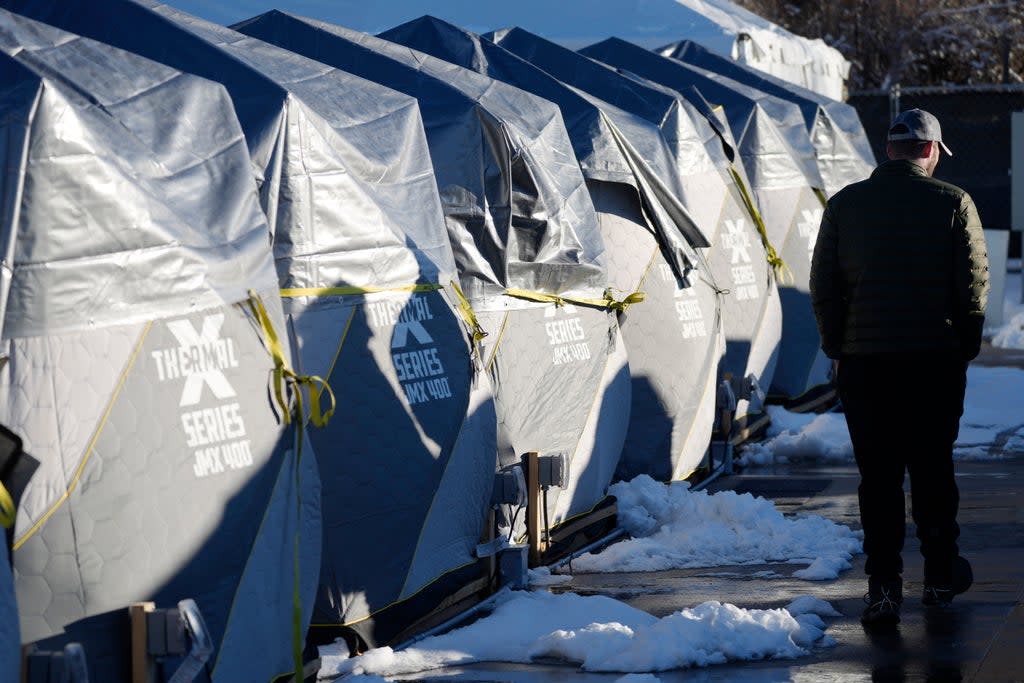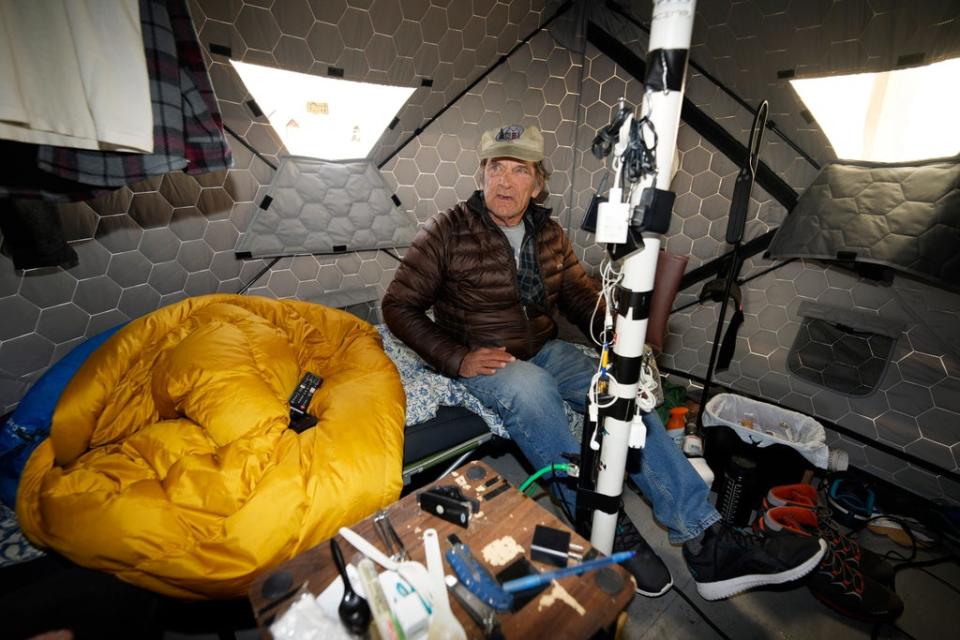Ice fishing tents converted to housing for the homeless in Colorado

Ice fishing tents have been converted to housing for the homeless in Colorado.
The 42-square foot tents cost up to $400 each and come with electrical outlets, a cot and zero-degree rated sleeping bag.
They are part of Denver’s $4m investment aimed at providing the homeless with “safe outdoor space” and an alternative to public shelters.
The project is run by the Colorado Village Collaborative and aims to help those sleeping outside to transition into permanent housing.
The tents sit on fenced-off leased land and are available to anyone who agrees to the rules, which include no selling drugs, and no weapons or disrupting neighbours.
Residents can come and go 24 hours a day and the sites also provide daily meals, wireless internet, showers, laundry and trash services.
The project is open to guests of either gender and couples are allowed to stay together
Other cities, such as Seattle and Portland, Oregon, have built tiny homes to address the housing crisis, but they can often cost as much as $25,000 per unit to build.
Colorado Village Collaborative provided shelter for 240 people in three locations last year, and estimates it will help around 370 people after adding a fourth location.
“People can’t afford housing and the emergency sheltering system that was sort of developed, you know, largely in the ’80s, when the federal government got out of the business of funding housing is just like busting at the seams at this point,” said Cole Chandler, the Colorado Village Collaborative co-founder and executive director.
But not everyone agrees with the approach.
“We’re institutionalising that it’s okay for people to live outside,” Nan Roman, president of the National Alliance to End Homelessness told The Associated Press.

“Of course we need to do whatever they can if they’re living outside to keep them safe there’s no question.
“It’s just hard to see us say as a nation ‘Well it’s okay to see people stay outside as long as they have a tent.’ It’s hard to feel that that’s progress.”
But Mr Chandler believes that the project is a good first step for the homeless.
“Not everybody is immediately ready to come indoors,” he said.
“And I don’t want that to get played up as people don’t want housing, people want housing. But people want to come indoors on their own terms.”

